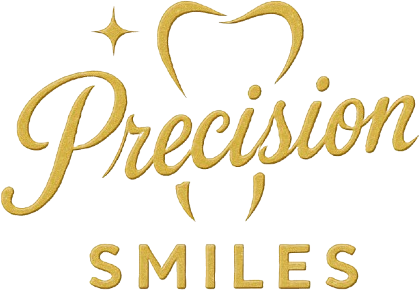3 Oral Hygiene Tips Your Family Dentist Wants You To Know

Going to regular cleaning checkups twice a year at the family dentist is only a fraction of what patients can do to maintain a healthy smile and mouth. There are many more steps patients can complete at home to prevent cavities, tooth decay, and gingivitis, among other oral complications. Never hesitate to ask a dentist about extra steps that can be taken outside each dental appointment.
Key tips from a family dentist
Some tips may seem obvious, but many people skimp on or completely skip basic oral hygiene practices that can be the difference between a good bill of health at each checkup or finding out a cavity needs to be filled. Here are the top three tips from a family dentist to keep patients out of the dental chair longer.
1. Brushing and flossing really do make a difference
Brushing teeth regularly is incredibly important to prevent plaque and tartar buildup, which can lead to bacterial infections and gum disease. Everyone should brush at least twice a day, but the impact of brushing depends on how long and thoroughly each patient does it. To properly remove plaque, each brushing should last two minutes; any less may not eliminate the sticky substance. Patients should also brush using certain techniques that allow bristles to access every crevice and clean off the gums. Flossing is just as important, as it cleans the surface of a tooth that a toothbrush cannot reach. Ask a dentist to demonstrate proper brushing and flossing techniques.
2. Getting enough fluoride is crucial
Fluoride is essential in keeping tooth enamel healthy and strong. Enamel is the hard outermost layer of the tooth that protects the inside from invasive bacteria. Fluoride maintains the minerals within enamel that strengthen it, so it is important to use toothpastes that contain fluoride. Patients should also consider where their drinking water comes from. Most tap water contains fluoride as well, but bottled water does not. Switching from bottled to tap water can save teeth and plastic.
3. Diet matters
What patients eat can affect the health of teeth immensely. While candy and sugary foods are often pinned as the culprits for causing cavities, there are many other foods that can begin to wear away at teeth. Starch can negatively oral health as well. Carbohydrates such as rice, bread, noodles, and potatoes can sustain the bacteria naturally found in the mouth, which are the true causes of cavities. Patients should take into account what they eat and limit how many sugary and carbohydrate-rich foods they consume. Minimizing and regulating a diet this way can keep teeth healthy and put a smile on any dentist’s face during a checkup.
Conclusion
These are only a small handful of the tips and tricks that can maintain a great smile. Consider talking to the family dentist next time about more ideas that are easy to establish as a part of an everyday routine.
Request an appointment here: https://precisionsmiles.net or call Precision Smiles. at (201) 204-1355 for an appointment in our Hackensack office.
Check out what others are saying about our services on Yelp: Read our Yelp reviews.
Related Posts
Invisalign® can help you reach your smile goals. This teeth-straightening system can also relieve other problems from misalignment. Knowing if you are a good candidate can help you prepare for your treatment. Here are the details on determining if you are a good candidate for Invisalign.Clinical studies show that age is a significant factor in…
Teeth-straightening with Invisalign® aims to improve your bite and smile. Straight teeth are more stable and easier to maintain. You can also reap many benefits in your career and social life with straighter teeth. Understanding the process can prepare you well for your first day of treatment. Here are some Invisalign FAQs to ask your…
Invisalign® is one of the most revolutionary orthodontic treatments available. This option serves as a clear, discreet way to correct dental misalignments. Invisalign aligners are customized to fit the teeth and are a lot less intrusive compared to conventional braces. The subtlety and convenience of Invisalign have made it a popular choice, particularly for adults…
If you find yourself with TMJ, you need to head to a TMJ dentist immediately. TMJ, or temporomandibular joint dysfunction, is a serious condition of the jaw that can cause everything from pain and irritation to complete inability to move the jaw. This condition can grow more serious by the day, so if you are…

